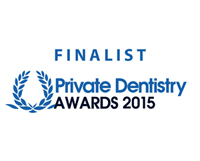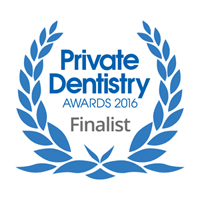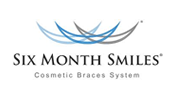
CALL NOW: 020 8673 7727
Blogs
Need to Know: Alcohol and Oral Health
 If you enjoy alcohol you should be aware of how it affects your oral health.
If you enjoy alcohol you should be aware of how it affects your oral health.
Key takeaways:
– Alcohol is acidic and can erode enamel so wait 30 minutes before brushing teeth after drinking.
– Sugar in alcohol increases the risk of tooth decay.
– Alcohol increases the risk of oral cancers.
If you drink alcohol keep hydrated with water. Make sure you brush your teeth twice a day and have regular check-ups with your dentist.
“Your dentist can perform an oral cancer screening during your appointment and talk with you about your risk for oral cancer.”
Full article:
https://yourdentalhealthresource.com/can-alcohol-affect-your-dental-health/
Posted by adwords on 6th August 2018, under Miscellaneous
Fruit Snacks to Keep Teeth Clean and Healthy
 Kids love a tasty snack during the summer and parents will be happy to know that there are several fun options which can help protect the teeth. What are some suggestions that your dentist might love?
Kids love a tasty snack during the summer and parents will be happy to know that there are several fun options which can help protect the teeth. What are some suggestions that your dentist might love?
– Frozen fruit bars are great ways to beat the heat.
– Fruit necklaces will allow children to embrace their creativity.
– Crunchy vegetables such as carrots and celery are healthy and they can help to clean the surfaces of the teeth.
“Have your kids make their own fruit kebobs, or, you can try fruit and cheese kebobs for an extra calcium boost.”
Other expert suggestions are found here:
https://yourdentalhealthresource.com/healthy-summer-snacks-your-teeth-and-your-kids-will-love/
Posted by adwords on 2nd August 2018, under Miscellaneous
Did You Know a Deep Clean at the Dentist Could Save Your Life?
 Although regular dental check-ups seem like a chore, your dentist can spot problems early and perform a deep clean that can have substantial health benefits:
Although regular dental check-ups seem like a chore, your dentist can spot problems early and perform a deep clean that can have substantial health benefits:
– A growing body of evidence supports an association between untreated gum disease and serious diseases such as cancer and diabetes.
– A deep clean removes plaque build-up, reducing gum inflammation and preventing gum disease.
– Regular dental check-ups can spot any problems early enough to be treated effectively.
“Instead of being anxious about your smile or depressed about missing teeth, simply schedule a dentist appointment at least once a year to keep your smile as healthy as possible!”
Read the full story here: https://yourdentalhealthresource.com/the-consequences-of-skipping-those-yearly-teeth-cleanings/
Posted by adwords on 27th July 2018, under Miscellaneous
Did You Know Vaping May Cause Cancer?
 Considered a healthier alternative to traditional cigarettes, E-cigarettes may still be detrimental to your health. In summary:
Considered a healthier alternative to traditional cigarettes, E-cigarettes may still be detrimental to your health. In summary:
– E-cigarettes still burn nicotine and other toxic chemicals that are inhaled.
– People who smoke E-cigarettes have a higher risk of oral health problems such as gum inflammation and tooth decay, and more serious conditions such as oral cancer.
– Your dentist will advise how you can counteract the effects of vaping.
“These chemicals have the potential to be carcinogenic, and since the vapour is coming into direct contact with the mouth, your risk for oral cancer is increased.”
Read the full story here: https://yourdentalhealthresource.com/can-vaping-impact-your-oral-health/
Posted by adwords on 25th July 2018, under Miscellaneous
Consulting Your Dentist on the Benefits of Restorative Dentistry
 Restorative dentistry can help restore your smile if you have experienced tooth decay, cracked or broken teeth, or if you’ve lost a tooth. Your dentist can advise on the best treatment plan.
Restorative dentistry can help restore your smile if you have experienced tooth decay, cracked or broken teeth, or if you’ve lost a tooth. Your dentist can advise on the best treatment plan.
Key takeaways:
– A ceramic crown can be used on a tooth where the damage is large enough for it to require a protective cap.
– Dental veneers can be placed over teeth to correct issues such as stains or chips.
– A titanium dental implant is inserted permanently in to the jaw to replace a missing tooth.
“Your dentist’s ultimate goal is to protect your natural smile, so restorative dentistry typically involves working with your existing tooth structure to help support the teeth that have been affected by your condition.”
Read the full story here
https://yourdentalhealthresource.com/what-are-the-different-types-of-restorative-dentistry/
Posted by adwords on 20th July 2018, under Miscellaneous
The Effects of Tongue Piercing on Your Oral Health
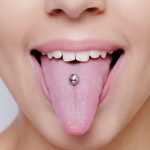 Recent research has shown that people with tongue piercings may experience more oral health problems than those who do not have a tongue piercing. Those with tongue piercings:
Recent research has shown that people with tongue piercings may experience more oral health problems than those who do not have a tongue piercing. Those with tongue piercings:
– Are more likely to develop gum disease, damaged gums or an infection.
– May have cracked teeth due to the piercing regularly banging against teeth causing micro-fractures.
– Can reduce the chances of oral complications by keeping the piercing very clean and visiting the dentist regularly.
“Tongue piercings interfere with eating, swallowing and speaking, and cause irritation and damage by constantly rubbing and clicking against the teeth and gums.”
Read the full story here: https://consumer.healthday.com/dental-and-oral-information-9/misc-dental-problem-news-174/tongue-piercings-may-bring-harm-to-teeth-and-gums-735168.html
Posted by adwords on 17th July 2018, under Miscellaneous
Are You Planning To Get A Gum Graft?
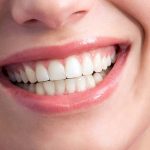 A gum graft is used to treat gum recession around the teeth. It is a procedure in which the periodontist removes gum tissue from the roof of the mouth — then uses the tissue to treat receding gums.
A gum graft is used to treat gum recession around the teeth. It is a procedure in which the periodontist removes gum tissue from the roof of the mouth — then uses the tissue to treat receding gums.
Key points:
– There are three types of gum grafts; free gingival, pedicle, and connective tissue.
– The type of graft you undergo depends on the severity of your gum problems.
– Ensure recovery by eating soft and cool foods, quit smoking, and avoid brushing at the treatment site.
Visit your dentist regularly for checkups.
Read more here:
https://www.medicalnewstoday.com/articles/322115.php
Posted by adwords on 14th July 2018, under Miscellaneous
Need to Know: Tooth Bonding
 Tooth bonding uses a composite resin, matched to the colour of your teeth, to restore problem teeth and improve your smile.
Tooth bonding uses a composite resin, matched to the colour of your teeth, to restore problem teeth and improve your smile.
Key takeaways:
– Cracks and chips can be successfully covered by tooth bonding.
– Tooth bonding is also used to hide small gaps between teeth.
– Composite resin can be used for “invisible fillings”.
If you are concerned about any chips, cracks or unsightly fillings talk to a dentist about tooth bonding today.
“Once bonded to your teeth, it’ll need to be maintained, but is considered a permanent solution to your smile.”
Read the full article here:
https://yourdentalhealthresource.com/how-can-tooth-bonding-improve-my-smile/
Posted by adwords on 10th July 2018, under Miscellaneous
Sealants for Permanent Teeth
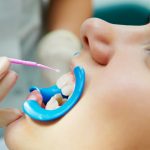 Dental sealant is a new, efficient protective treatment that coats the biting surfaces of back teeth to help keep them clean and protect them.
Dental sealant is a new, efficient protective treatment that coats the biting surfaces of back teeth to help keep them clean and protect them.
Key takeaways:
– Notably, sealants might even stop decay in its early stages.
– Although sealants are no substitute for regular cleaning, they do help prevent cavities from forming.
– Clear sealants also enable your dentist to examine the surfaces of your molar teeth in future check-ups.
According to an American Center for Disease Control report, treated school-age children had almost two-thirds fewer cavities than children without sealants.
See what a leading dentist advises here:
https://www.mouthhealthy.org/en/az-topics/s/sealants
Posted by adwords on 6th July 2018, under Miscellaneous
Using An Inter-Dental Cleaner if You Have Braces?
 If a dentist or orthodontist has recently installed faces, brushing can be tricky. A tool known as an inter-dental cleaner can help to vastly simplify this process. How does an inter-dental cleaner work?
If a dentist or orthodontist has recently installed faces, brushing can be tricky. A tool known as an inter-dental cleaner can help to vastly simplify this process. How does an inter-dental cleaner work?
– This tool enables you to reach underneath the wires between braces.
– It can also be used to brush around the circumference of the brackets.
– The cleaner can be employed to reach areas between the teeth.
“Cleaning your teeth with braces might feel like a chore at first, but you’ll get used to this important practice.”
Learn more about brushing with braces by following this link:
https://yourdentalhealthresource.com/how-should-i-brush-my-teeth-when-i-have-braces/
Posted by adwords on 3rd July 2018, under Miscellaneous
Treatment of TMJ in Children
 Temporomandibular Joint Disorders (TMJ is a dysfunction of the mastication muscles and/or the joints that connect the jaw to the brain. They are not common among children but can show as they are growing older.
Temporomandibular Joint Disorders (TMJ is a dysfunction of the mastication muscles and/or the joints that connect the jaw to the brain. They are not common among children but can show as they are growing older.
The three main things to know about the treatment of TMJ disorders are:
– There are non-invasive treatments that use special TMJ appliances fitted by a dentist.
– A dentist may refer your child to an orthodontist for specialist treatment
– In rare cases, surgery may be required
“Watch out for signs that your child is experiencing TMJ pain. They may complain that it hurts when they chew, speak, or yawn. Your child may even complain that the sides of their face hurt or that their teeth hurt.”
Read more about the causes, symptoms, and treatment of TMJ disorders in this article https://yourdentalhealthresource.com/tmj-treatment-options-for-children/
Posted by adwords on 29th June 2018, under Miscellaneous
Recent Study Links Chemicals Within Baby Teeth to Autism
 A recent study found that levels of copper and zinc within baby teeth could increase the chances that the cognitive disorder autism will develop.
A recent study found that levels of copper and zinc within baby teeth could increase the chances that the cognitive disorder autism will develop.
Researchers have discovered some very interesting findings.
– Minerals like copper and zinc are metabolised and deposited within baby teeth.
– Abnormal levels of these two minerals could indicate autism.
– In the future, both autism and ADHD might be able to be uncovered in baby teeth at an early age.
“Using lasers, the researchers sampled these layers and were able to reconstruct past exposures.”
A full brief is located at this link:
Posted by adwords on 26th June 2018, under Miscellaneous
Can a Cracked Tooth Be Fixed?
 Left untreated, cracked teeth can lead to pain and discomfort and long-term problems. But a crack in a tooth is often almost invisible and undetectable. However, there are some warning signs to be aware of, including:
Left untreated, cracked teeth can lead to pain and discomfort and long-term problems. But a crack in a tooth is often almost invisible and undetectable. However, there are some warning signs to be aware of, including:
– Sensitivity to hot and cold food and drinks
– Pain when biting or chewing
– Unexplained discomfort around a tooth or the surrounding gum tissue
Other signs of a possible crack are “pain that tends to come and go” and swollen gums. If any of these symptoms appear they should be brought to the attention of a dentist who will carry out a thorough examination. An informative article about cracked teeth can be read at
https://www.medicalnewstoday.com/articles/322015.php
Posted by adwords on 19th June 2018, under Miscellaneous
How is Novocaine Administered?
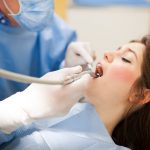 You might be slightly nervous if you will soon be receiving Novocaine to treat a problem with your teeth or gums. The good news is that this procedure is normally painless and it will be completed in no time at all. Let’s take a closer look.
You might be slightly nervous if you will soon be receiving Novocaine to treat a problem with your teeth or gums. The good news is that this procedure is normally painless and it will be completed in no time at all. Let’s take a closer look.
– The portion of your mouth being addressed will be thoroughly dried.
– A small needle is used to inject Novocaine into the surrounding tissues.
– Most patients will experience no pain whatsoever after five minutes.
”First, a dentist will use cotton rolls or air to dry the part of the mouth being treated.”
Learn more about the process by following the link below:
https://www.medicalnewstoday.com/articles/321880.php
Posted by adwords on 16th June 2018, under Miscellaneous
What to Do If Your Infant Might Have Gum Disease
 If your infant has sore, swollen or bleeding gums, they might have gum disease. Here’s what you should do:
If your infant has sore, swollen or bleeding gums, they might have gum disease. Here’s what you should do:
– Take your infant to a dentist as soon as possible; gum disease can be treated, preventing more serious problems arising.
– Prevent gum disease from developing by cleaning your infant’s mouth thoroughly after feeds with a soft damp washcloth.
– The dentist will be very happy to advise on the best gum and teeth cleaning techniques for your infant.
“In order to promote good oral health and prevent gum disease in infants, you must clean their mouth regularly.”
Read the full story here: https://yourdentalhealthresource.com/can-infants-suffer-from-gum-disease/
Posted by adwords on 12th June 2018, under Miscellaneous
Do You Suffer from Sleep Apnea? Here are Some Warning Signs
 Sleep apnea is an insidious condition, as most individuals are unaware that it is present. It is still a fact that this disorder can affect the teeth, gums and other important areas within the mouth. What are a handful of indications that you might be experiencing sleep apnea?
Sleep apnea is an insidious condition, as most individuals are unaware that it is present. It is still a fact that this disorder can affect the teeth, gums and other important areas within the mouth. What are a handful of indications that you might be experiencing sleep apnea?
– The enamel on your teeth has become eroded for no apparent reason.
– You awake in the morning with chronic headaches.
– Your dentist has noticed a change in the position of your jaw.
“Usually, a person isn’t aware that they wake up gasping for breath after these episodes.”
A more thorough discussion can be found below:
https://yourdentalhealthresource.com/how-does-a-dentist-diagnose-sleep-apnea/
Posted by adwords on 8th June 2018, under Miscellaneous
The Potential future Impact of Childhood Tooth Trauma

Children a prone to accidentally damaging their teeth as they grow. It is critical to see a dentist, as early treatment may be able to avoid issues in the future. These long-term effects could indeed go far beyond the initial damage.
– It is not uncommon for nerve damage to occur as a result of the trauma.
– This damage may take years to become apparent.
– There are some instances when a dentist will perform a root canal to remove a damaged nerve.
“Trauma can provoke inflammation, which may damage the tooth’s root or nerve over time.”
You can obtain more information below:
https://health.clevelandclinic.org/what-to-do-if-your-child-chips-loosens-or-loses-a-tooth/
Posted by adwords on 5th June 2018, under Miscellaneous
Dental Warning Signs
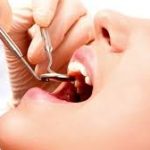 Healthy teeth and gums are more than just desirable as they also have an impact on our physical well-being. Similarly, problems that manifest themselves in the mouth can be indicative of underlying medical issues.
Healthy teeth and gums are more than just desirable as they also have an impact on our physical well-being. Similarly, problems that manifest themselves in the mouth can be indicative of underlying medical issues.
During a dental exam, your dentist can determine if you have these symptoms:
– Sudden appearance of dental cavities
– Eroded tooth enamel
– Bleeding gums
One should also be wary of white spots on your tongue as these may signify the onset of a condition called oral thrush. Any sudden or prolonged unusual symptoms should be discussed immediately with your dentist who can determine the exact cause of the problem and you can read more at http://www.health.com/oral-health/oral-symptoms#91e274f6-0309-4f45-89fc-0efbd737ab40.
Posted by adwords on 25th May 2018, under Miscellaneous
Here’s What You Need to Know About Flossing
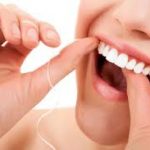 You cannot reach everywhere with a toothbrush, so it’s important to floss in order to remove all the food debris and bacteria from between your teeth.
You cannot reach everywhere with a toothbrush, so it’s important to floss in order to remove all the food debris and bacteria from between your teeth.
Top tips:
– Floss gently between teeth before brushing.
– Use a clean section of floss each time.
– Gently clean up and down the sides of teeth.
Your gums may bleed the first few times but correct flossing technique should not continue to irritate the gums.
If you believe you’re flossing correctly but are still bleeding regularly, see your dentist. You may have gum disease.
More hints and tips in the full article:
https://yourdentalhealthresource.com/how-can-i-know-if-im-flossing-correctly/
Posted by adwords on 22nd May 2018, under Miscellaneous
Advice About White Spots On Your Gums
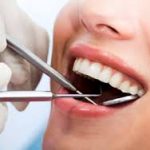 White patches on the gums are often due to mouth ulcers or thrush (a Candida infection). But some are linked to other conditions that can increase the risk of oral cancer.
White patches on the gums are often due to mouth ulcers or thrush (a Candida infection). But some are linked to other conditions that can increase the risk of oral cancer.
Key takeaways:
– Quit smoking and reduce the amount of alcohol, sugar and salt in your diet.
– Clean your teeth twice daily using a soft toothbrush.
– See a dentist for regular check-ups.
Regular dental examinations mean that your dentist can spot any problem and treat it quickly.
Early detection can prevent the problem from progressing and may reduce the risk of complications.
Read the full article here:
https://www.medicalnewstoday.com/articles/321454.php
Posted by adwords on 18th May 2018, under Miscellaneous

